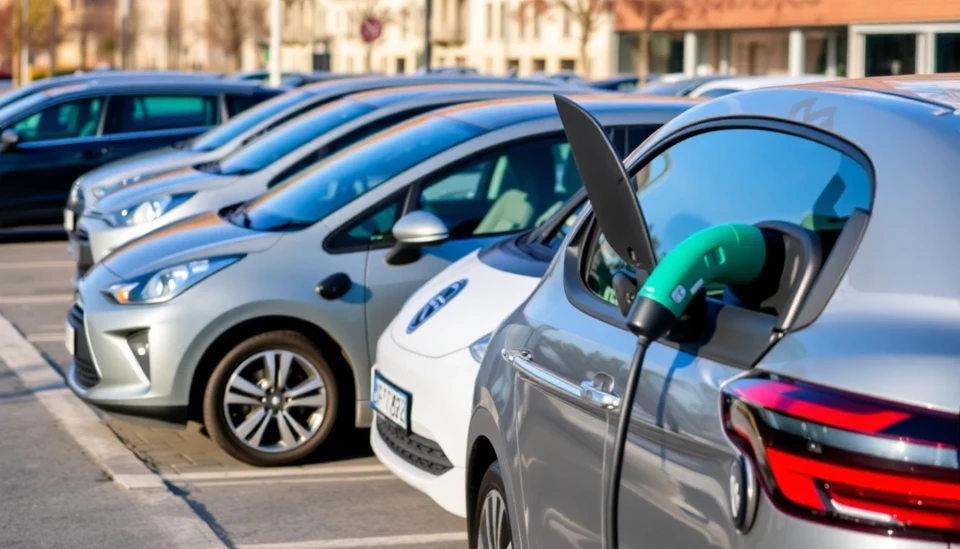
In a disheartening trend for the automotive industry, car sales in Europe have shown little to no signs of growth, with figures for November remaining stagnant as the market grapples with persistent challenges in the electric vehicle (EV) sector. This development raises concerns about the overall health of the European automotive market and the future adoption of EVs.
The latest data reveals that car sales across the continent have failed to bounce back, prompting industry analysts to rethink their forecasts for the remainder of the year. The stagnation is particularly striking when examined in the context of previous years, which witnessed more vibrant growth patterns driven by increasing consumer interest in electric mobility.
Despite aggressive promotional efforts by manufacturers and government incentives designed to encourage EV purchases, many consumers seem hesitant. A combination of factors, including rising interest rates, economic uncertainty, and a lack of adequate charging infrastructure, appears to be contributing to this reluctance. Consequently, numerous manufacturers are reporting lower-than-expected sales figures for their electric models, which could impact future investments in sustainable technology.
Market analysts have pointed out that the apprehension towards purchasing EVs is particularly pronounced in several key markets, including Germany and France, where traditional combustion engine vehicles continue to be favored. In these countries, the reluctance to switch to electric alternatives underscores the pressing need for comprehensive policies and infrastructures to support the transition to electric mobility.
Furthermore, competitive pressures from other regions, particularly Asia, have compounded the challenges faced by European automakers. Many Asian manufacturers have successfully implemented cost-effective strategies and advanced battery technologies, enabling them to offer EVs at more attractive price points. This increased competition has the potential to undermine European manufacturers’ market share, particularly if they cannot innovate swiftly in response.
In light of these hurdles, industry experts stress the importance of a collaborative approach among manufacturers, governments, and energy providers to streamline the transition to electric vehicles. Strategies such as expanding the charging network, developing affordable battery technologies, and offering consumer education programs could play pivotal roles in reviving interest in EVs among European drivers.
The coming months are therefore critical for the automotive sector in Europe. Stakeholders are on high alert, evaluating how the industry can pivot toward a more positive trajectory. A renewed focus on innovation, sustainability, and consumer engagement may be necessary to overcome the current stagnation and foster a more dynamic automotive landscape in Europe.
As the automotive industry stands at a crossroads, the results of this period could have lasting implications for the future of mobility in Europe. Whether these challenges can be turned into opportunities remains to be seen, but proactive measures are essential to ensure that Europe does not fall behind in the global race towards a greener transportation system.
In conclusion, while the current climate is challenging for car sales in Europe, the path forward lies in collaboration, innovation, and revitalized consumer interest that could ultimately lead to a comeback for both the automotive and electric vehicle sectors.
#Europe #CarSales #ElectricVehicles #EVMarket #AutomotiveIndustry #Sustainability #Innovation #MarketTrends #ConsumerBehavior
Author: Victoria Adams




